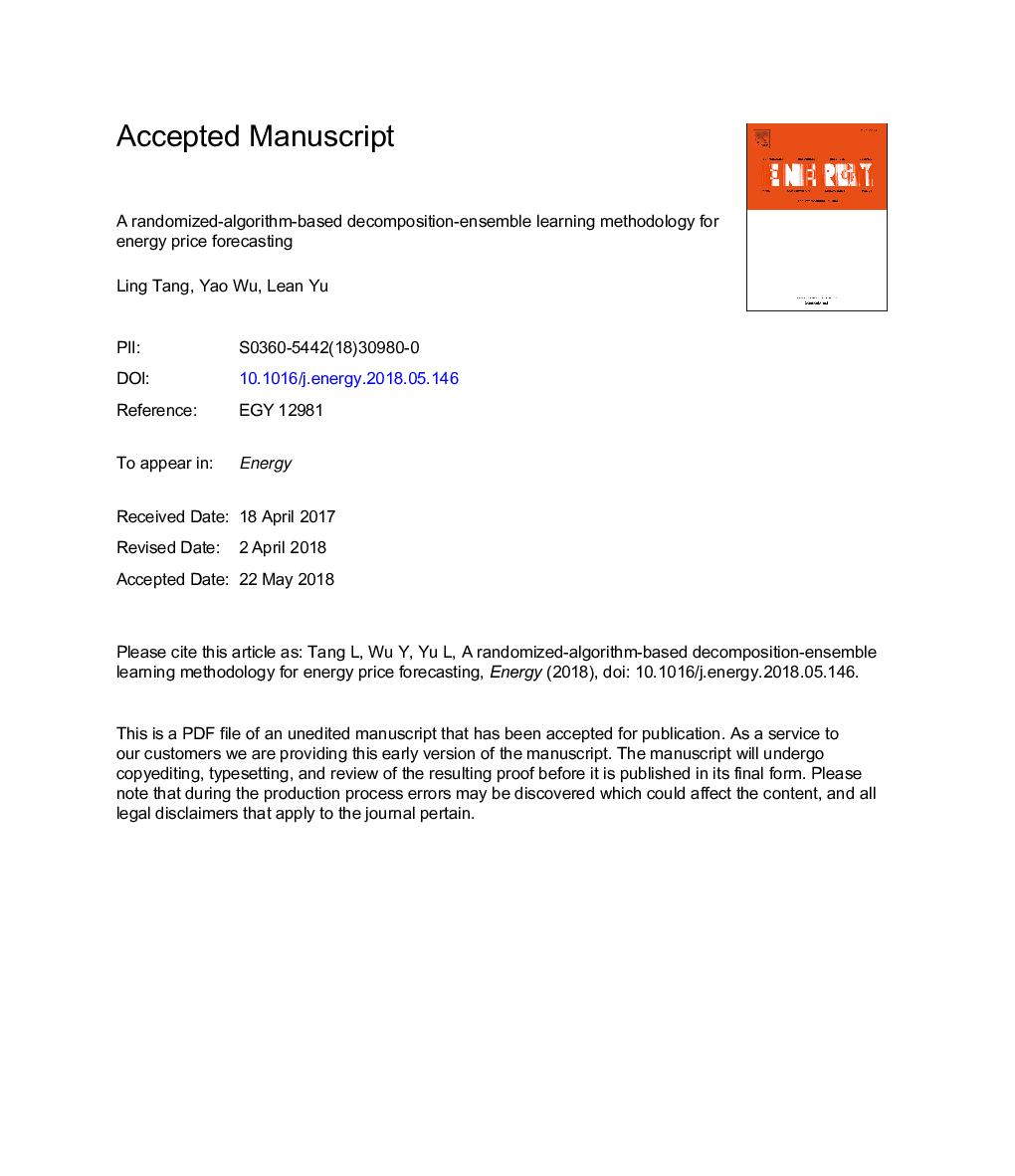| Article ID | Journal | Published Year | Pages | File Type |
|---|---|---|---|---|
| 8071258 | Energy | 2018 | 33 Pages |
Abstract
Inspired by the interesting idea of randomization, some powerful but time-consuming decomposition-ensemble learning paradigms can be extended into extremely efficient and fast variants by using randomized algorithms as individual forecasting tools. In the proposed methodology, Three major steps, (1) data decomposition via ensemble empirical mode decomposition, (2) individual prediction via a randomized algorithm (using randomization to mitigate training time and parameter sensitivity), and (3) results ensemble to produce final prediction, are included. Different from other existing decomposition-ensemble models using traditional econometric approaches or computational intelligence methods in individual prediction, this study employs some emerging randomized algorithms-extreme learning machine, random vector functional link network (using randomly fixed weights and bias in neural networks), and random kitchen sinks (using randomly mapping features to approximate kernels)-to dramatically save computational time and enhance prediction accuracy. With the Brent oil prices and the Henry Hub natural gas prices as studying samples, the empirical study statistically confirms that the proposed randomized-algorithm-based decomposition-ensemble learning models are proved to be excellently efficient and fast, relative to popular single techniques (including computational intelligence methods and randomized algorithms) and similar decomposition-ensemble counterparts (using the aforementioned single techniques as individual forecasting tools).
Related Topics
Physical Sciences and Engineering
Energy
Energy (General)
Authors
Ling Tang, Yao Wu, Lean Yu,
